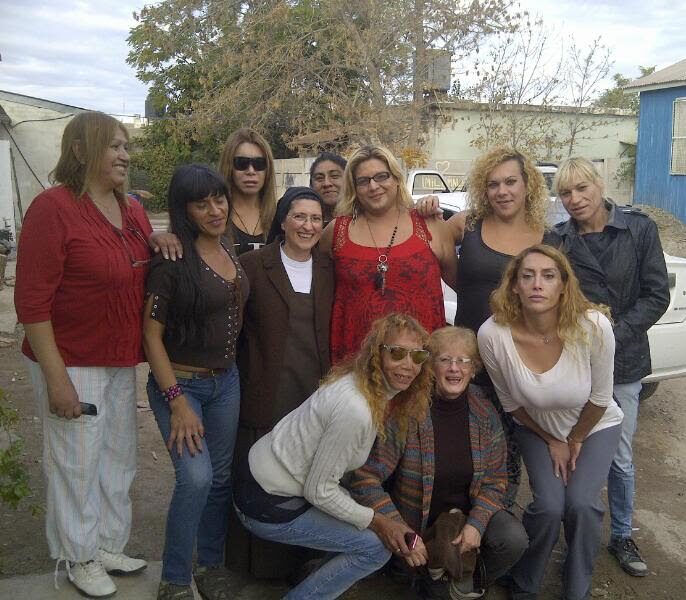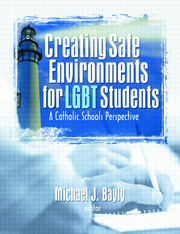In 2017, Sister Mónica Astorga Cremona, a Discalced Carmelite nun who has worked with transgender women in her native Argentina since 2006, sent an email to Pope Francis, whom she had previously known when he was Cardinal-Archbishop of Buenos Aires. According to Crux, he responded the next day. “I have you and the convent [in Neuquén, Argentina] close to my heart, as well as the people with whom you work,” wrote the Holy Father in his response.
In May, Father James Martin, S.J., conducted an email interview with Sister Mónica, now a Carmelite for 37 years. She told Outreach that 29 transgender women had died in Argentina between January and May of this year. “I keep a record of deaths,” she wrote.
The following interview, edited for length and clarity, was translated from the Spanish by Ivan and Maria Briggeler and J.D. Long-García. The original Spanish-language version can be found here.
Father James Martin, S.J.: Can you describe your first encounter with a transgender person? What was your initial response?
Sister Mónica Astorga Cremona, O.C.D.: My first meeting with a trans woman was at the monastery in Neuquén. She had gone to a parish to pray to the Little Virgin of Lourdes, for whom she had a great love and felt her protection.
My initial response was astonishment. (I had gay friends and lesbian friends, but no trans friends.) Faced with a mystery so great, that God had put me forward to help her, I once again experienced that help is always mutual. We talked for two hours and I couldn’t believe that a human being suffered so much for her gender.
Father Martin: How did your ministry to transgender people begin?
Sister Mónica: First, I began accompanying this trans woman whom I mentioned at the beginning. Then I asked her to invite other colleagues. We held a meeting and so many more joined, each one with a search for something different, something transcendent. When I asked them their dreams and one of them told me they wished to have a clean bed to die on, it really impacted me.
Father Martin: Can you describe your ministry? Where is it? How many people work with you?
“Something I learned was to maintain joy in the face of so much rejection and pain. Trans people look for some humor amid suffering.”
Sister mónica astorga cremona
Sister Mónica: My service in the church and in society is that of all Discalced Carmelite nuns: praying for everyone and, more specifically, for the situations that are closest to us. Every day I pray for those who are living in different places—ones I know and ones I don’t know, too.
When we started this transgender ministry, I was a link between those who wanted to help trans people and those who wanted to be helped. We also prayed together and had personal spiritual accompaniment. When things grew, a support house was opened where almost all of the trans people we work with can partake in self-guided workshops. For that, a team has already been formed, which today is coordinated by a priest and a trans person.
Father Martin: What is the most surprising thing you have learned about transgender people?
Sister Mónica: It is difficult to talk about what is most surprising in the face of so many paths traveled. Something I learned was to maintain joy in the face of so much rejection and pain. Trans people look for some humor amid suffering.
Father Martin: What would you most like Catholic leaders to know about transgender people?
Sister Mónica: When someone begins to be an active part of our church, it is because they have felt a call to follow Jesus. And in their life, they try to see that the Reign of God is close. You just have to have a contemplative gaze to discover it. I discovered the Reign of God in trans people, too. And I invite everyone who has this experience not to be left with the prejudices that distance us so much.

(Photo courtesy of Sister Mónica Astorga)
Father Martin: Some Catholics say that transgender people are the result of ‘gender ideology
,’ or in the case of young people, peer pressure or media images. Others say that they are an offense to Christian morality, since there are only two sexes, male and female. Others say that when they transition, they are mutilating themselves. How do you respond to those comments?
Sister Mónica: Transgender people existed before any ideology. If it difficult to judge the foundational experiences [of trans people]. Yes, I can say from my experience that the best thing is to know their lives, their sufferings and their joy. My invitation is to love like Jesus, not to judge.
Father Martin: Can you tell us a story about one of your transgender friends to help us understand their lives?
Sister Mónica: The trans woman who asked me for a clean bed in which to die was 40 years old at that time. She was expelled from her house at the age of 13. Her mother told the whole family that she was dead. She lived as a prostitute, was an alcoholic and took drugs. Every night to withstand clients, she would go out with two bottles, half wine and half Coke. When she returned to her miserable rented home, she cried and asked God to no longer live like this.
Today, she has her sewing workshop. She works in the morning in a diversity office and began her addiction recovery nine years ago. After 34 years, she is reunited with her family and her mother calls her daily.
“Ever since I was little, I saw God very close to all human pain.”
sister Mónica Astorga Cremona
Father Martin: Have you ever met any opposition within the church? How did you answer? What has allowed you to continue?
Sister Mónica: I did meet a lot of opposition. I didn’t always respond in the same way, but I did learn that every setback you experience leads you to see how you position yourself in life and to evaluate whether what you do is according to God. And that allows you to continue knowing that nothing is yours and everything is through Him, with Him and in Him
.
Father Martin: Pope Francis recently wrote you an encouraging letter. Can you describe how that happened? Had you met him during his time as Archbishop of Buenos Aires?
Sister Mónica: Pope Francis and I have known each other since before he was an archbishop. We had some short and profound talks, and he wrote to me precisely at a time when he was trying to discern where to go next. He encouraged me not to stop accompanying the discarded people of society.
Father Martin: How has your understanding of God changed because of this ministry?
Sister Mónica: Ever since I was little, I saw God very close to all human pain. That’s why, when I entered Carmelites, I asked to never lose joy and that God would always show me the faces and names of people who suffered. I wanted to have my feet on the ground.
I was accompanying prisoners, young people with addictions, people who came to our community for food and trans women who showed me the crucified Christ, who were not allowed to reach resurrection. Today, more than ever, I see that God who walks by our side.
Father Martin: How can we accompany a trans person?
Sister Mónica: Make her feel human.




